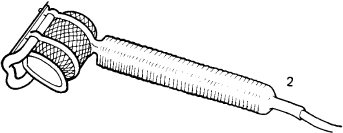On Foreign Soil
Operating abroad has in many ways become much easier since the introduction of ENG. Previously, a fire brigader covering a story in another country was invariably dependent on the goodwill of the local television station for the processing of film and arrangements for its transmission by landline, microwave or satellite link as an alternative to freighting it home undeveloped and uncut. Delay and frustration were commonplace, especially at times of big stories, when it seemed that half of the world’s camera teams were simultaneously demanding facilities from a television station barely equipped to cope with its own programme commitments.
The independent news team
Nowadays the team assigned to a big foreign story will often include a picture editor who travels complete with a mobile editing pack so that the item can be put together on the spot. This is the ideal solution journalistically, but it remains an option open only to those organisations able to afford the cost of flying an entire team and equipment thousands of miles from base.
Setting up
An experienced picture editor can turn virtually any small room into an editing suite within an hour to provide a base for the whole operation. With careful rearrangement of curtains and furniture a hotel room can also double as a simple studio by using the team’s camera. All this helps to reduce the pressure on the reporter, who can concentrate on getting the story instead of worrying whether the promised co-operation of another television organisation will be forthcoming and effective.
Unless the team is also carrying its own satellite communications dish or Feedpack–a mobile standards converter through which it is possible to transmit pictures back to base–it will still be necessary to co-operate with the local television station to have the edited material fed home.
Doing your homework
Never take anything for granted when working abroad. The simplest and most obvious matters can bring disaster if overlooked. Make allowance for the difference in time zones between one country and another: remember that a story shot on, say, the PAL 625-line television standard is incompatible with NTSC 525 lines; and that it is no good embarking blindly on a five-minute ‘epic’ when the assignments desk at home wants and expects a maximum of one and a half.
Camera teams are known to have missed deadlines by confusing local and ‘home’ times; arrived at a friendly foreign television station with important material on the wrong standard for transmission; and put all their efforts into a lengthy item intended for a programme reduced to a weekend summary.



On foreign soil
Given a little effort, the average hotel room can be turned into a passable imitation of an editing suite (1). Closing the curtains will keep down noise. The picture editor will use headphones instead of loudspeakers and you can record your commentary direct onto the sound track using a ‘lip mike’ (2). Furniture can be rearranged to create a small ‘studio effect’ for interviews (3) using the ENG camera.
